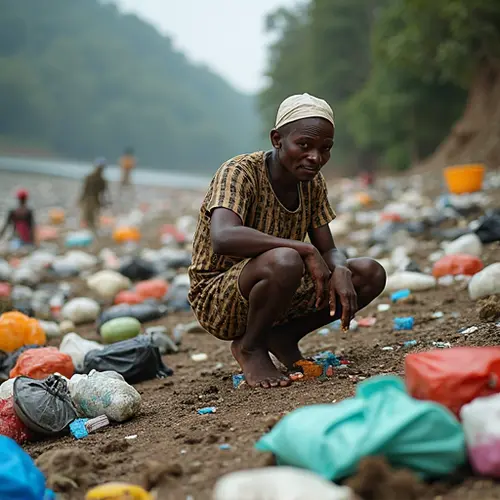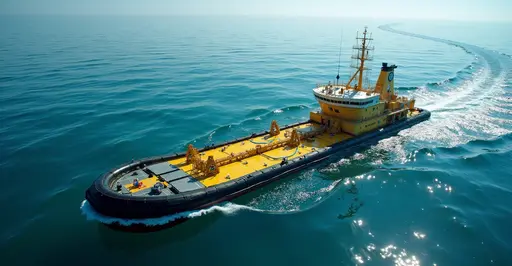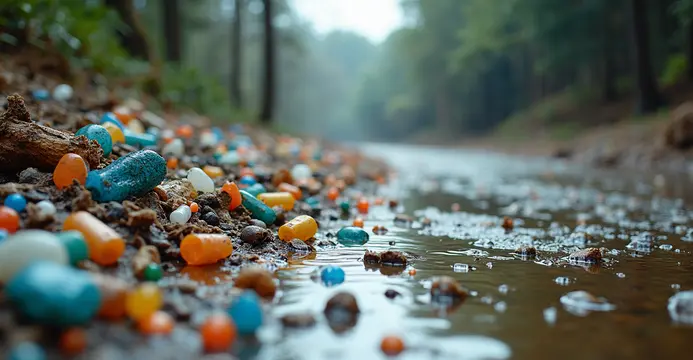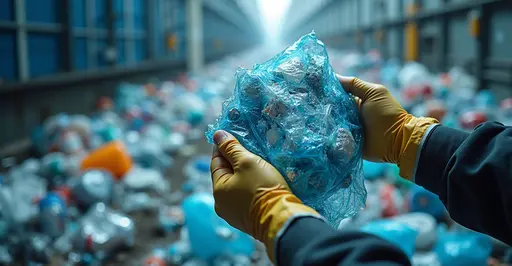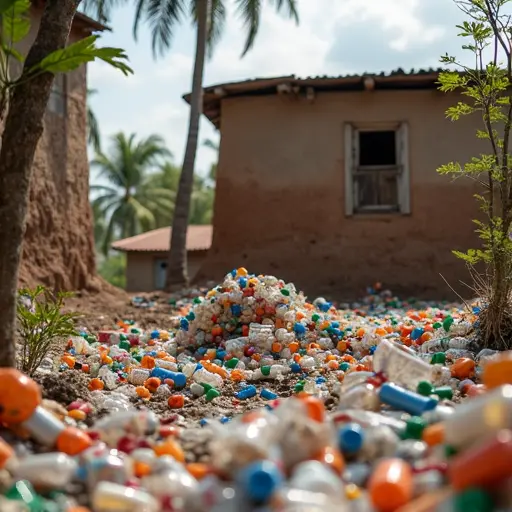
Africa's Plastic Waste Challenge
Across Africa, cities generate over 17 million tonnes of plastic waste annually, with less than 10% recycled. Countries like Nigeria, Kenya and South Africa face growing environmental pressures from plastic pollution clogging waterways and harming ecosystems. But innovative solutions are emerging through circular economy models.
Transforming Waste into Resources
Nairobi-based startup Gjenge Makers turns plastic waste into durable bricks stronger than concrete. Founded by materials engineer Nzambi Matee, the company recycles 500kg of plastic daily into affordable building materials. "We're solving two problems: plastic pollution and housing shortages," says Matee.
In Lagos, Wecyclers uses a fleet of cargo bikes to collect household plastics, rewarding communities with points redeemable for goods. Their model has diverted over 2,000 tonnes from landfills since 2020.
Global Recognition
These innovations align with World Environment Day 2025's focus on plastic solutions. As highlighted by the World Economic Forum, African initiatives demonstrate how circular economy principles tackle pollution while creating jobs.
Community-Led Models
Ghana's Recycle Up! trains youth to transform plastic waste into products like school desks. "Each desk contains 100kg of recycled plastic," explains founder Cordie Aziz. Similar projects in Tanzania turn fishing nets into carpets, showing how local adaptation drives impact.
Policy Support
34 African nations have enacted plastic bag bans, while Rwanda leads with strict anti-plastic laws. The African Circular Economy Alliance is scaling innovations through policy frameworks and investment. "These solutions prove waste has value when we redesign systems," says Alliance director Nana Adwoa Adobea Asante.
The Road Ahead
With plastic production projected to triple by 2050, circular models offer sustainable alternatives. From AI-powered sorting to micro-enterprises making fashion from plastic, Africa's innovations provide replicable blueprints for global waste reduction.

 Nederlands
Nederlands English
English Français
Français Deutsch
Deutsch Español
Español Português
Português



